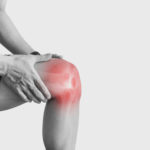March 21, 2019
Everyone experiences pain in their lifetime that goes away. However, chronic pain can make it difficult for you to stay comfortable and sleep throughout the night. At the same time, lack of sleep can make your pain worse and reduce your pain tolerance. This can lead to a vicious cycle of sleepless nights and chronic pain that never gets better. This cycle reduces a person’s quality of life.
What’s the connection between pain and sleep? Here’s what you need to know, along with the next steps to take so you can effectively treat both chronic pain and sleeplessness.
The Link Between Pain and Sleep Loss
The connection between pain and sleep loss varies from person to person based on the root cause of the problem. For instance, sleep loss can cause pain due to the way it lowers your pain threshold and tolerance, which can worsen pain that already exists. On the other hand, pain can cause sleep loss due to the way it prevents you from relaxing and getting comfortable enough to fall and stay asleep.
Chronic pain overlaps with many other health problems that contribute to sleep loss, such as irritable bowel syndrome and migraines. Nausea, indigestion, anxiety, and depression are just some symptoms of IBS that can interfere with a good night’s sleep. While migraines can make people more sensitive to noise, light, and temperature. When combined with pain, all of these symptoms can make it nearly impossible to sleep.
How to Treat Pain and Sleep Loss
The key to identifying the link between pain and sleep loss is to identify the root cause of the overall problem. Treating the root cause can help you overcome both health conditions.
For example, a person who is overweight may suffer lower back pain as a result of carrying excess weight. Being overweight or obese is a risk factor for a sleep disorder called obstructive sleep apnea. Obstructive sleep apnea is more common in those who are overweight due to the way excess fat tissue compresses the airway to cause snoring and stopped breathing during sleep. Therefore, losing weight could treat the root cause of the problem by helping relieve back pain and alleviating sleep apnea.
People who suffer chronic pain caused by conditions like arthritis, fibromyalgia, and nerve pain may already use medications that can be dangerous to take with sleep aids. This can be a potential treatment barrier for those in pain who want to get a good night’s sleep. In instances like these, a sleep specialist can evaluate the person’s sleeping environment and lifestyle behaviors, and make suggestions that support a better night’s sleep. A sleep specialist can also conduct a sleep study to identify any concurrent sleep disorders.
What to Do if You’re Suffering Pain and Sleep Loss
If you’ve been suffering chronic pain and sleep loss, make an appointment with a sleep doctor or sleep specialist to rule out any underlying sleep disorders. A sleep doctor may have you perform a home sleep study or have you stay at an overnight sleep clinic where you can be monitored and evaluated while you sleep.
If they diagnose you with a sleep disorder, treating the disorder can help you experience pain relief and a quality night’s sleep. Common types of sleep disorders include insomnia, restless legs syndrome, and obstructive sleep apnea.
In the meantime, practice healthy behaviors that promote a better night’s sleep. Expose yourself to sunlight during the day and stay physically active, even if you just prefer talking walks. Go to bed at the same time every night, stop watching television, and using your smartphone within a few hours of bedtime. Behaviors like these can often go a long way toward helping you feel more relaxed so you can benefit from a good night’s sleep.
At Healthcare Associates of Texas, we understand chronic pain and all types of sleep disorders and are devoted to helping you recover from both conditions. Schedule an appointment today.
References:
https://www.ncbi.nlm.nih.gov/pmc/articles/PMC6193199/
https://www.ncbi.nlm.nih.gov/pmc/articles/PMC4046588/
https://hms.harvard.edu/news/more-sleep-less-pain
DISCLAIMER
The information featured in this site is general in nature. The site provides health information designed to complement your personal health management. It does not provide medical advice or health services and is not meant to replace professional advice or imply coverage of specific clinical services or products. The inclusion of links to other web sites does not imply any endorsement of the material on such websites.



